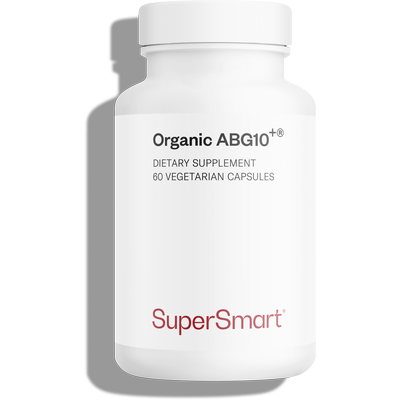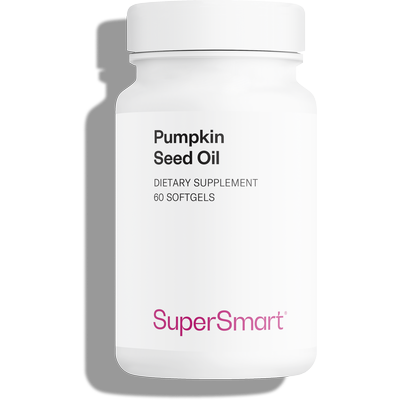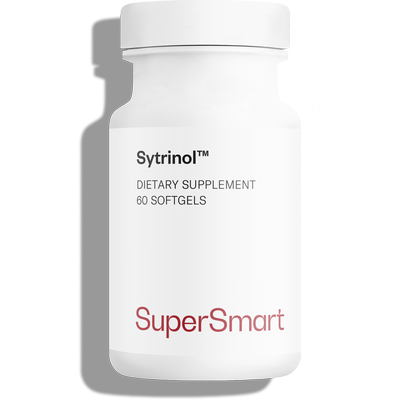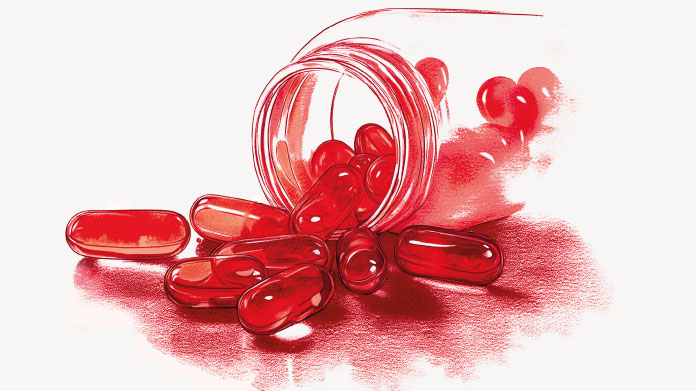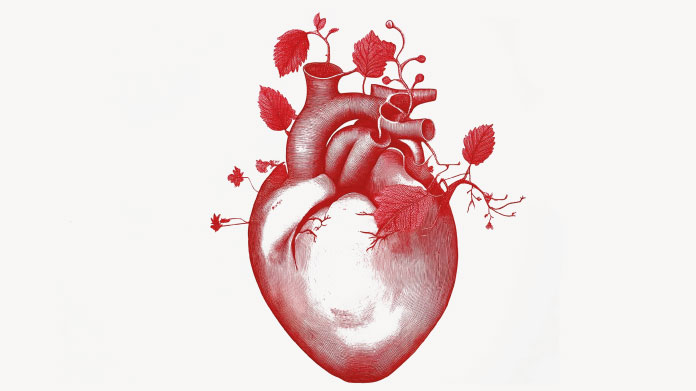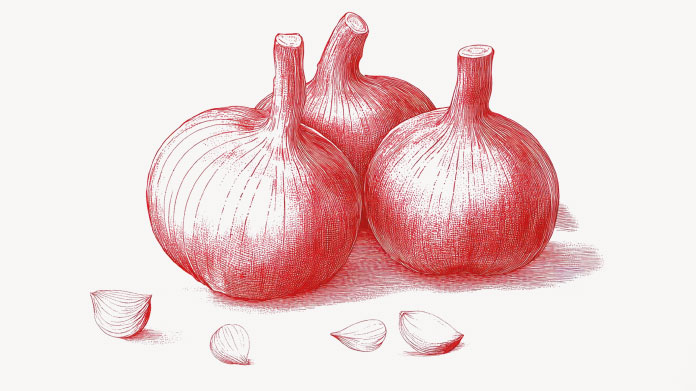Do pumpkin seeds help reduce cholesterol levels?
Pumpkin seeds are credited with many health benefits including reducing cholesterol levels. Is this actually the case?

What are pumpkin seeds?
Pumpkin seeds are small, highly-nutritious edible seeds obtained from pumpkins.
They are eaten roasted, chopped, ground, or ‘as they come’, as an appetizer, a snack, or in salads, soups or mixed dried fruit.
They are nutritionally significant because they have a high content of minerals and trace-elements (magnesium, zinc and iron), fibre, protein (30g per 100g), vitamins A and E, and unsaturated fatty acids.
Do pumpkin seeds have specific benefits in terms of reducing cholesterol levels?
Pumpkin seeds are associated with health benefits, including their potential for lowering levels of ‘bad’ cholesterol (1).
As a reminder, ‘bad’ or LDL cholesterol is a risk factor for cardiovascular disease because it can build up on artery walls and form atheromatous plaques which impair blood flow and increase the risk of heart problems and stroke.
Let’s take a look at pumpkin seeds’ 5 mechanisms of action on cholesterol:
Pumpkins seeds are high in fibre
Generally speaking, dietary fibre helps to reduce levels of LDL cholesterol.
To facilitate the digestion of fats, the gallbladder produces bile acids from blood cholesterol.
These cholesterol-laden acids are released into the gut during digestion, but are neutralised by dietary fibre which ‘traps’ them and prevents them from being reabsorbed by the body.
Instead, they end up being excreted in stools along with the fibre. The gallbladder is therefore forced to make new bile acids by drawing on blood cholesterol and thus the level of LDL-cholesterol in the blood is reduced (2).
An excellent source of magnesium
Pumpkin seeds’ high magnesium content (120mg for just 20g, or 30% of the RDA) is another of its weapons for combatting LDL.
Indeed, many studies suggest that magnesium reduces absorption of lipids in the gut, especially cholesterol, at mealtimes (3), and that it simultaneously raises levels of ‘good’ HDL cholesterol (4).
Phytosterols similar to human cholesterol
Pumpkin seeds contain phytosterols such as β-sitosterol, campesterol and stigmasterol (around 250mg per 100g).
These plant compounds are structurally similar to human cholesterol.
In the gut, this similarity is enough to reduce cholesterol absorption as the two compounds compete with each other during the formation of the micelles responsible for making them cross the intestinal barrier (5-6).
Pumpkin seeds: beneficial antioxidant properties?
These seeds are rich in antioxidants, such as vitamin E (2.2mg per 100g, or 18% of the RDA) and carotenoids (including lutein and zeaxanthin).
These substances are believed to protect the body against LDL oxidation. When cholesterol-transporters become oxidised, they are no longer recognised by the body and are instead consigned to phagocytosis, a protective process responsible for neutralising unwanted particles. They then form a deposit, which over time accumulates into plaques (this is termed ‘atherosclerosis’) which can end up blocking the arteries.
The antioxidant compounds in pumpkin seeds are thought to curb this process.
Unsaturated fatty acids and transport of LDL cholesterol
The polyunsaturated fatty acids in pumpkin seeds (which represent almost half their total fatty acids) are another ‘string to their bow’ in lowering cardiovascular risk.
These fatty acids, which cannot - unlike saturated ones - be produced by the body, appear to confer greater fluidity to cell membranes, the mechanism of action likely to be behind their potential benefits in respect of LDL (7).
This property may enable more LDL particles to be transported inside cells and thus reduce the amount of LDL cholesterol in the blood.
Combatting ‘bad’ cholesterol: important reminder
To conclude then, pumpkin seeds appear to have significant positive effects in terms of lowering ‘bad’ LDL cholesterol.
They cannot, however, be considered a ‘miracle cure’.
To control your blood cholesterol levels, you need to adopt a holistic approach that includes a balanced diet, a healthy lifestyle, regular exercise and if necessary, appropriate medication.
What’s the best way of consuming these seeds to maximise their effects on LDL cholesterol?
Because they are high in unsaturated fatty acids, shelled pumpkin seeds are very prone to rancidity.
To preserve their beneficial effects, it’s therefore best to keep them refrigerated, and consume them raw or dried, rather than roasted.
Pumpkin seed and other anti-cholesterol supplements
To help boost your intake easily and substantially, there are pumpkin seed oil dietary supplements (such as Pumpkin Seed Oil), which also support urinary health and function.
With regard to cardiovascular health, you could also take a black garlic supplement, known for its LDL-fighting properties (try, for example, Organic ABG10+®), or the patented supplement Sytrinol™, to support the liver, the site of cholesterol control.
SUPERSMART ADVICE
References
- El-Mosallamy, A.E.M.K., Sleem, A.A., Abdel-Salam, O.M.E., Shaffie, N., Kenawy, S.A. (2012). Antihyperlipidemic effects of Cucurbita pepo L. in high-fat diet-induced hyperlipidemic rats. Journal of Medicinal Food, 15(5), 495-500.
- Brown, L., Rosner, B., Willett, W.W., Sacks, F.M. (1999). Cholesterol-lowering effects of dietary fiber: a meta-analysis. The American Journal of Clinical Nutrition, 69(1), 30-42.
- Effects of magnesium on postprandial serum lipid responses in healthy human subjects. Kishimoto Y, Tani M, et al. Br J Nutr. 2010 Feb;103(4):469-72. Epub 2009 Nov 27.
- Effects of oral magnesium supplementation on glycaemic control in Type 2 diabetes: a meta-analysis of randomized double-blind controlled trials. Song Y, He K, et al. Diabet Med. 2006 Oct;23(10):1050-6.
- Vergès, Les phytostérols : quels bénéfices ? quels risques ?, Doi : MMM-12-2009-3-6-1957-2557-101019-200908708
- Katan, M.B., Grundy, S.M., Jones, P., Law, M., Miettinen, T., Paoletti, R. (2003). Efficacy and safety of plant stanols and sterols in the management of blood cholesterol levels. Mayo Clinic Proceedings, 78(8), 965-978.
- Kuo P, Weinfeld M, Loscalzo J. Effect of membrane fatty acyl composition on LDL metabolism in Hep G2 hepatocytes. Biochemistry. 1990 Jul 17;29(28):6626-32. doi: 10.1021/bi00480a011. PMID: 2168736.
Keywords
1 Days
Just OK
Just OK, ordering from company for many years and being safisfied
Lynn Mae
1 Days
Recomendo
Produtos encomendados são recebidos atempadamente e de acordo com o anunciado! Muito satisfeita!
Carla Sofia
2 Days
Everything is great!
Everything is great!
Jonas
7 Days
The delivery was fast and the product…
The delivery was fast and the product is great
SOMMARIVA Gianni
8 Days
Great service and lots of information
Great service and lots of information
Gabi
11 Days
Service Satisfaction
I’m satisfied with the service; it fulfilled what it set out to do.
Anfhony Abreu
14 Days
Original product and fast delivery
Original product and fast delivery. I haven't started it yet, but will do soon.
Vincenza Catania
17 Days
Good quality
Good quality. Good service.
Leonel Guzman
19 Days
Top!!!!!!!!
Top!!!!!!!!
Michael
21 Days
Excellent!
Products are great and delivered fast!
PARDINI Debora
21 Days
From order to receive the product
From order to receive the product, the process is smooth & fast. It’s good to customers.
WONG Mei Ling
22 Days
Fast delivery
very quick delivery to italy. product is good.
Customer
23 Days
Prompt delivry !!👍
Prompt delivry !!👍
SWEET Christine
24 Days
Good delivery and flawless quality
AS far as delivery and the visual quality are concerned, Supersmart is excellent. I will not comment on the efficacy of the products themselves, since that is only possible over a longer period and in a large customer base compared to people who do not consume a particular product.
Roger De Backer
25 Days
Perfect services
Perfect services, perfect support, great articles about products
Michaela Alali Beitlová
of experience
your money back
##montant## purchase


